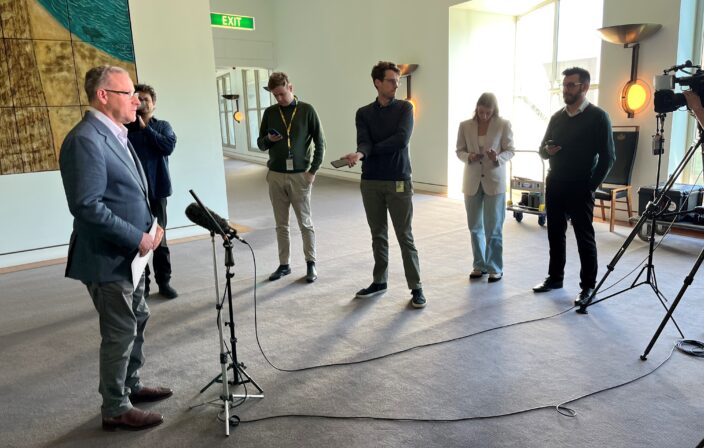Andrew McKellar interview with Chris Kenny, The Kenny Report, Sky News
7 Jul 2022
|Transcripts
Event: Andrew McKellar interview with Chris Kenny, The Kenny Report, Sky News.
Speakers: Andrew McKellar, chief executive Australian Chamber of Commerce and Industry; Chris Kenny, host The Kenny Report, Sky News.
Date: 6 July 2022.
Topics: labour and skills shortages, increasing permanent skilled migration, labour market testing, employer summit, risk of recession.
E&OE
Chris Kenny, host The Kenny Report, Sky News: Australian Chamber of Commerce and Industry chief executive, Andrew McKellar, is urging the Albanese government to raise the permanent migration rate to 200,000 people a year, and he joins me now to discuss. Thanks for joining us, Andrew. Migration, immigration, is always a sensitive topic, but we’ve had immigration prior to the pandemic running at about 300,000 people a year. Do you think we’re ready to get it back up to 200,000?
Andrew McKellar, chief executive Australian Chamber of Commerce and Industry: Well, good evening, Chris. Look, we would say that an ambitious but sustainable migration program, skilled migration program, has to be part of the answer in terms of the crushing labour and skill shortage that business and the Australian economy are facing at the moment. It’s the worst it’s been in nearly 50 years, and we really do need to take action. One of the issues we’ve been facing is with the borders having been shut for the past two years, until very recently, we just haven’t had any inflow at all. We have to make up for some of that lost time, and it is one of the only ways that we are going to be able to fill some of those critical skill shortages that we face at the moment.
Chris: Now, you want the rules changed. You want the labour market testing relaxed. That would seem to be a fairly sensible idea, given unemployment is so low. Everybody knows there is a labour shortage across so many areas.
Andrew: Well, that’s exactly right. I mean, we have a national unemployment rate, 3.9 per cent. We are pretty much at or beyond full employment at the moment. The number of vacancies out there in the economy at the moment, 480,000 on the last reading, is almost up to the same level as the unemployment number. So look, we’re in a situation where employers cannot find the workers that they need locally. In those circumstances, one of the most viable options is obviously to reduce the burden, the bureaucracy, the red tape, the extra expense that they’re facing, to respond quickly and get people into the country. We’re facing huge competition from other economies like Canada, like the UK. They’re moving much more quickly than us now, and we run the risk of falling behind.
Chris: Let me play devil’s advocate here on the economic risk. We know that the economy’s on a precipice with interest rates and inflation, and we’re hoping that the Reserve Bank can land the joint without pushing us into recession. But if we bring in a whole lot of skilled labour, a whole lot of additional immigrants, and then we’re pushed into recession in the next year or so, that’s just going to create a terrible burden on the country and welfare payments, isn’t it?
Andrew: Absolutely not. So, I mean, the situation we’re facing here is one, in an economic sense, where we face real supply side constraints. That’s one of the factors that’s pushing up inflation at the moment, that’s exacerbating the risks in the economy, and we need to increase capacity. Now, one of the ways we can increase capacity is bring some of that labour shortfall in. So this is really a win-win for the Australian economy. It will be moderating our risk, not exacerbating it. So I think it really has to be something that is very much on the table as the government prepares for its employment summit in the next couple of months. And it’s something that we’ll be bringing to the discussion as part of that process.
Chris: Absolutely. It’s got to be very, very high on the agenda. And this so-called job summit is now really more about an employer summit. It’s about getting people into jobs, rather than finding the jobs at the moment. Thanks for joining us, Andrew. I appreciate your time.
Andrew: Thanks, Chris.
Chris: Andrew McKellar there, from the Australian Chamber of Commerce and Industry. A lot of labour shortages right across the country.


